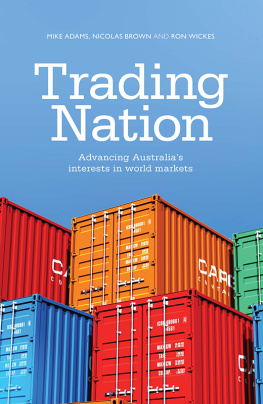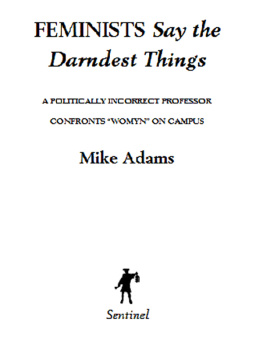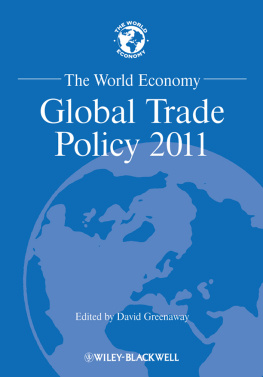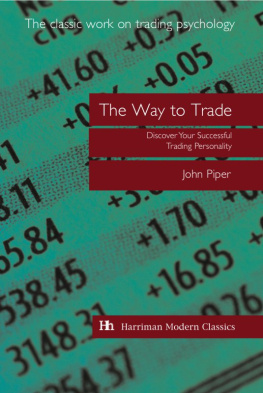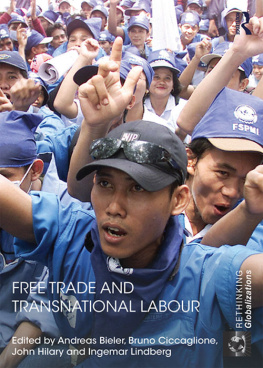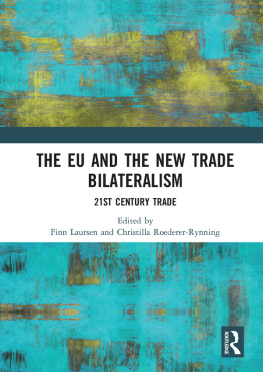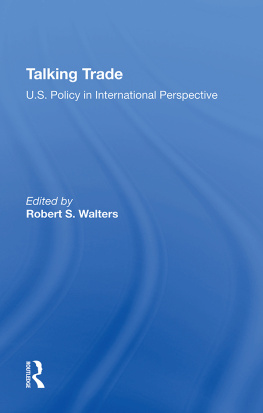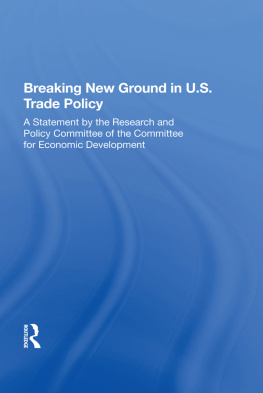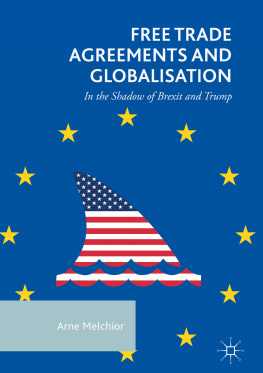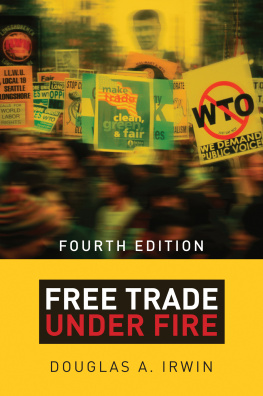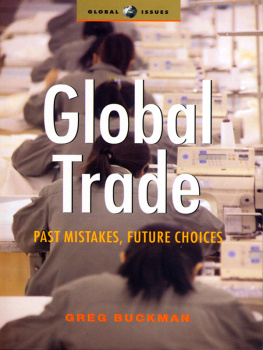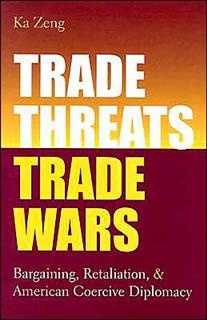Trading Nation
M IKE A DAMS is a former Department of Foreign Affairs and Trade (DFAT) economist with extensive experience in trade-related aspects of e-commerce, free trade agreements, climate change and agricultural protectionism. Mike was Australias economic counsellor in Beijing from 2000 to 2004 and commercial counsellor in Wellington from 1989 to 1992. He holds a PhD in economic history from the University of Hull. His most recent book covers the experience of British prisoners of war on the ThailandBurma railway during and after the Second World War.
N ICOLAS B ROWN headed DFATs branch responsible for analysis and strategic advice about trade and economic issues for five years to 2008. He also headed the Canada and Latin America Branch over 2009 and 2010 and was Australias Deputy High Commissioner to Malaysia from 2000 to 2003. Nic joined DFAT in 1996 from the Department of the Prime Minister and Cabinet and worked in the Australian Bureau of Statistics (ABS) in the early part of his career. He holds a Masters degree from the London School of Economics.
R ON W ICKES was Director of the Trade Analysis Section of DFAT from 1999 until 2008. Before that, he worked in the APEC Branch, and in the East Asia Analytical Unit. Ron has a PhD in International Relations from the Australian National University and a graduate qualification in econometrics from the University of New England. In 2005, he was awarded a Public Service Medal for contributions to trade policy.
For our families, especially Pauline, Suzanne and Sharelle
Trading Nation
Advancing Australias interests in world markets
MIKE ADAMS, NICOLAS BROWN and RON WICKES

A UNSW Press book
Published by
NewSouth Publishing
University of New South Wales Press Ltd
University of New South Wales
Sydney NSW 2052
AUSTRALIA
Mike Adams, Nicolas Brown, Ron Wickes 2013
First published 2013
This book is copyright. Apart from any fair dealing for the purpose of private study, research, criticism or review, as permitted under the Copyright Act, no part of this book may be reproduced by any process without written permission. Inquiries should be addressed to the publisher.
National Library of Australia Cataloguing-in-Publication entry
Author: Adams, M. G. (Mike G.), author.
Title: Trading Nation: Advancing Australias interests in world markets/Mike Adams, Nicolas Brown, Ron Wickes.
ISBN: 9781742234014 (paperback)
9781742246680 (ePDF)
Subjects: Commercial policy.
International economic relations.
International trade.
Other Authors/Contributors:
Brown, Nicolas, author.
Wickes, Ron, author.
Dewey Number: 382.3
Design Josephine Pajor-Markus
Cover design Xou Creative
Cover images Thinkstock

All reasonable efforts were taken to obtain permission to use copyright material reproduced in this book, but in some cases copyright could not be traced. The authors welcome information in this regard.
Contents
Foreword
No policy area is more domestic than international trade policy. George P Shultz, who made this remark in a book he coauthored with Kenneth Dam in the 1970s, was well placed to know, later becoming Secretary of State in the Reagan Administration. The early exclusion of agricultural trade and then textiles from the GATT (now WTO) and the emergence of voluntary export restraints for auto trade were early manifestations of this reality at work. And yet the United States and most other countries have generally acted as if trade policy were indeed international, its outcomes dependent on the negotiating skills of trade diplomats in Geneva, or New York or London.
Fortunately, Australia took a different path to trade liberalisation, one that was essentially unilateral. This was partly pragmatism, given that our traditional export interest was off limits at that time to negotiation, but it mainly came through recognition that Australians would benefit from reducing protection, regardless of the actions of other countries. Thus the 25 per cent tariff cut of the Whitlam era, and the deeper and more sustained reductions of the HawkeKeating era, and indeed most of the subsequent reforms in the services sector, were not contingent on obtaining reciprocal concessions from our trading partners. Australias more recent pursuit of preferential trading agreements has not really changed the essential story. Relatively little liberalisation has occurred through these compared to the domestically initiated reforms. The extent to which enhanced foreign market access has occurred is another matter, with some deals scoring better than others.
Import barriers provide a shelter for inefficiency extending well beyond those industries directly competing with imports. Australias liberalisation efforts of the 1980s ultimately drove a change in mindset throughout the business community from seeking assistance from government, to seeking ways of becoming more productive and competitive. Some of the biggest obstacles were policy-related. Reforms to our inefficient government infrastructure monopolies and hidebound industrial relations systems were important early achievements. The benefits that flowed from these pro-competition reforms saw them extended through the National Competition Policy. Finally, reform efforts were ramped up in areas of social infrastructure with the aim of enhancing human capital and reducing social disadvantage. All this began with tariff reform and arguably would not have occurred without it.
The interdependencies between international trade policy, domestic policy and national politics, and the benefits of having these pulling together, make it vital that we do not rest on our laurels or, worse, slip back to old ways. This book contains welcome recognition of this, drawing on the insights of three insiders from the trade bureaucracy with many years experience. In a way, it provides a reconciliation between the world of trade diplomacy and the domestic policy world that ultimately determines what diplomatic efforts can achieve.
It also represents a welcome departure from the negotiating coin mindset that has traditionally (and perhaps understandably) been exhibited by trade negotiators. In other countries, this has seen domestically beneficial liberalisation held back in the hope of using it to leverage concessions from others. Most countries have stored up so much of this negotiating coin over time that if this were indeed the key to achieving good outcomes the Doha Round would have been a raging success!
Policies that impact on trade are typically put in place in response to domestic political pressures and needs. (This is essentially where the negotiating coin comes from.) And it is these pressures that have to be countered if we are to achieve lasting reform, whether in international or domestic settings. As Australias own experience has shown, this is a never-ending task, because the pressures never go away. As long as there is hope that government will provide support, it will be sought. International commitments merely determine the field of play.
Considerable creativity has accordingly gone into finding ways of supporting local industries that do not run foul of obligations under the WTO or other agreements. So these days the name of the game in industry/trade policy is rectifying market failure, with new forms of government support to domestic firms and industries being offered to promote adjustment, enhance innovation, lessen environmental externalities, and so on. The automotive industry is a classic instance of how a politically influential player has been able to sustain government support through such avenues, notwithstanding the decline of its principal traditional protective instrument, the tariff.
Next page
